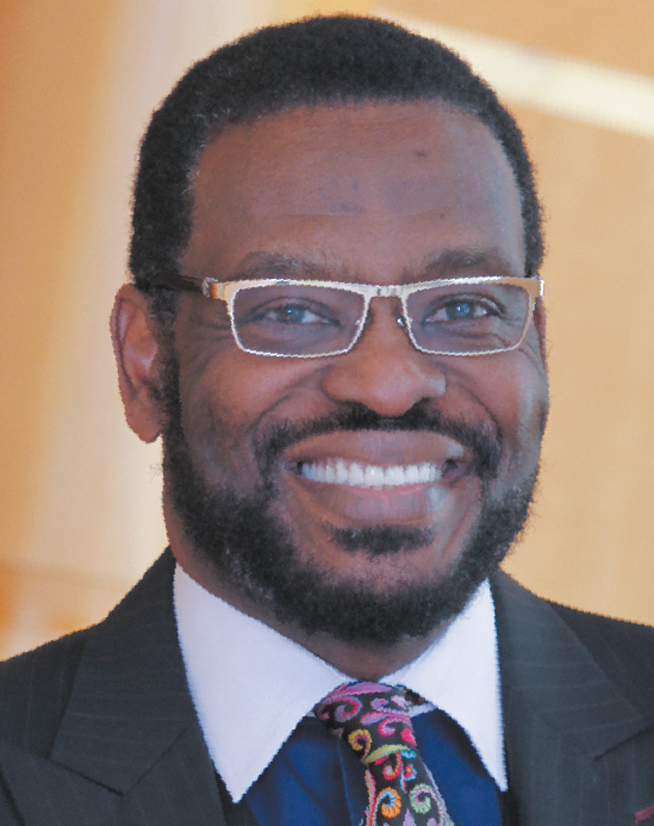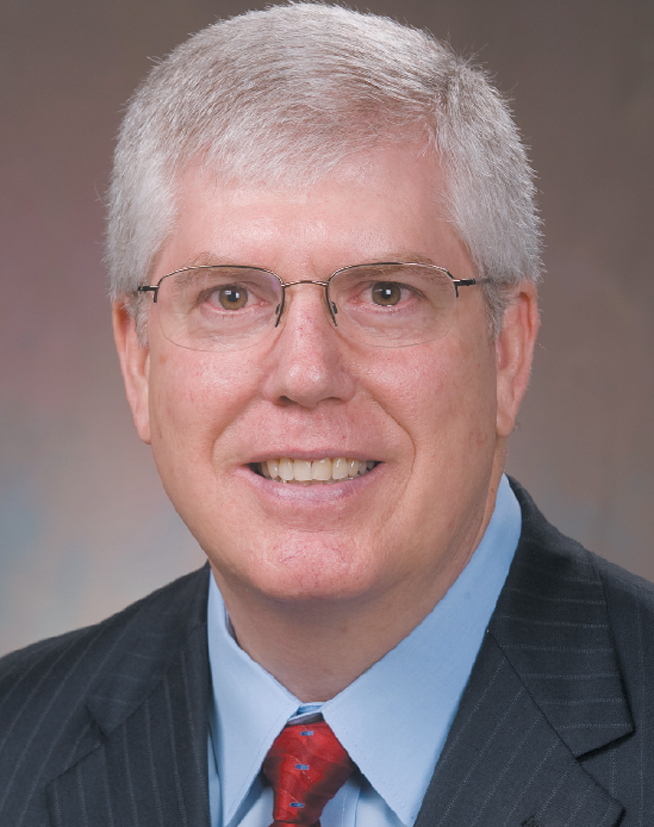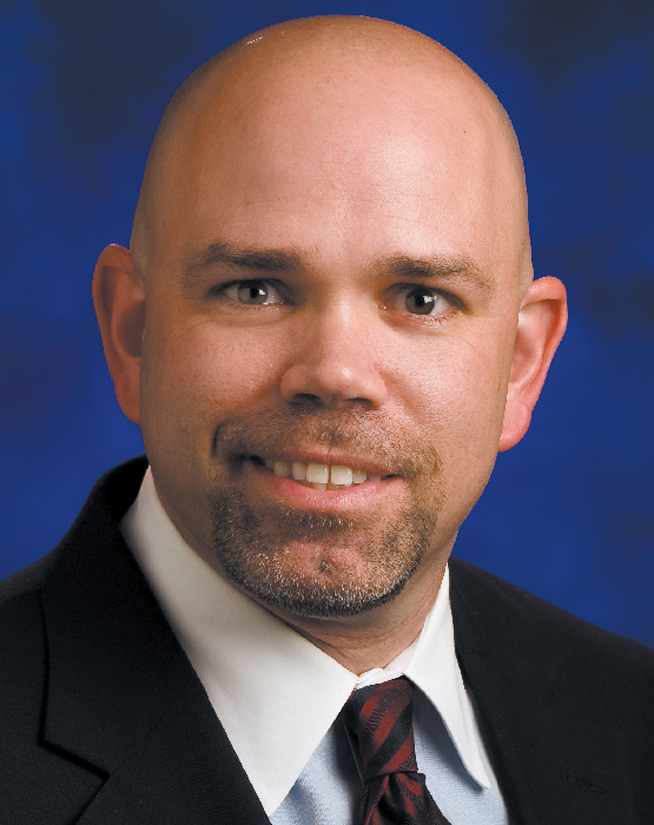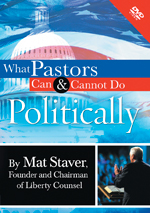Why pastors simply must speak out on political issues
 |  |  |
Bishop Harry R. Jackson Jr. | Mathew D. Staver | Kevin Theriot |
Bishop Harry R. Jackson Jr. interviewed Mathew D. Staver, founder and chairman of the Liberty Counsel; and Kevin Theriot, senior counsel for the Alliance Defense Fund (ADF), who discussed why pastors should not stay away from political issues—despite scrutiny from the IRS and groups threatening lawsuits.
Get Spirit-filled content delivered right to your inbox! Click here to subscribe to our newsletter.
Jackson: Mat, you have interacted with many pastors who believe they should “just preach” the gospel and stay away from political issues. What do you say to these church leaders?
Staver: In 1965, Jerry Falwell preached a sermon in which he admonished pastors to stay behind the pulpit and just preach the gospel. He didn’t think pastors should address political issues. But that changed on Jan. 23, 1973, the day after the U.S. Supreme Court handed down Roe v. Wade, which sanctioned the killing of unborn children up to the moment they are born. When telling his family that America had committed a grave sin, Falwell’s youngest child, Jonathan, said, “Daddy, you have to do something.” That was a wake-up call. Until the day he went to be with the Lord, Falwell was merely being obedient to God in his calling to be a pastor when he addressed political issues.
Jackson: Why do you think it is important that pastors address political issues?
Staver: As “watchmen on the wall,” pastors must not remain silent while the world walks into the pit of hell. The gospel reaches beyond the four walls of the church building. Christ is Lord of all. As we speak on Sunday, we must act on Tuesday. If we believe abortion is wrong and natural marriage is right, how can we not speak about our biblical responsibility to elect agents who will act on our behalf? God will hold pastors accountable for remaining silent when they should speak up. I am not speaking about the agenda of the donkey or the elephant, but about the agenda of the Lamb. Regarding the Lamb’s agenda, silence is not an option.
Jackson: Mat, as dean and a professor at Liberty University School of Law, are there any risks for churches to lose their tax-exempt status if they address political issues?
Staver: The short answer is no. No church has ever lost its tax exemption over lobbying, endorsing or opposing a candidate for public office. Churches may directly support or oppose legislation, and they may support or oppose those nominated for an appointed office. A church may devote at least 5 percent and up to 15 percent of its activity to lobbying. This is a significant amount of activity. While churches may not directly endorse or oppose candidates, they can host voter registration, distribute voter guides to educate about the candidates’ positions, and hold candidate forums and debates. Pastors can preach on any topic, including those being debated by candidates. They can encourage people to vote biblical values, and ministers can personally endorse or oppose candidates. The fear of losing tax exemption is a paper tiger.
Jackson: Kevin, do you agree that pastors have the right to speak freely from the pulpit—even about candidates for political office—without fear of losing their church’s tax-exempt status?
Theriot: Churches were tax exempt long before the IRS even existed. Pastors spoke freely from the pulpit without worrying about tax exemptions until 1954. That’s when Sen. Lyndon Johnson amended the tax code to prohibit any speech about a political candidate. The real effect of the Johnson Amendment is that pastors were muzzled for fear of investigation by the IRS and the possibility of being taxed. There is no surer way to destroy religion than to begin taxing it. As the U.S. Supreme Court has noted, the power to tax involves the power to destroy. But IRS rules don’t trump the Constitution, and the First Amendment certainly trumps the Johnson Amendment. The First Amendment ensures that pastors have the right to speak freely from the pulpit—even about candidates for political office. If the IRS ever decides to enforce the Johnson Amendment against a pastor who preaches about candidates for office from the pulpit (so far, they’ve never done so), we are confident it will not survive constitutional scrutiny by the courts.
Jackson: Should pastors submit to pressure from leftist groups and individuals to remain silent on biblical issues just because others have turned them into political issues?
Theriot: Groups like the Americans United for Separation of Church and State intentionally attempt to trigger IRS investigations that will silence churches through fear, intimidation and disinformation. But it’s a contradiction for groups that say they believe in “separation of church and state” to maintain that it’s the role of the IRS to decide what pastors can talk about in church without being investigated. A pastor’s duty to speak truth from the pulpit is a duty owed to God, not the taxman. Churches are the moral compasses of our nation. If pastors hesitate to speak boldly when fulfilling that responsibility, they leave moral direction to secular influences like public education and the entertainment industry. Pastors must continue to speak up on morality and other issues of the day if we hope to stop our nation’s drift away from God.
Jackson: How is the ADF protecting pastors’ rights to religious freedom and free speech with Pulpit Freedom Sunday?
Theriot: The purpose of Pulpit Freedom Sunday (PFS) is to restore the rights of pastors to do what they and their churches do: speak on any number of cultural and societal issues from a biblical perspective without fear of being punished by the government. It is not about whether pastors should or should not “endorse” candidates. PFS was designed to challenge the constitutionality of the Johnson Amendment. So far the IRS has not enforced the Johnson Amendment against any PFS pastor, even though all participants have sent their sermons to the IRS. Once they do enforce it, we will be able to file suit in federal court to challenge the constitutionality of this censorship of religious speech.
To download for free the What Pastors Can and Cannot Do Politically DVD, go to ministrytodaymag.com/images/stories/videos/staver_political.flv.
Don’t Let The IRS Shut You Up
What churches can do politically without losing their tax-exempt status
Every election year, thousands of pastors receive threatening letters claiming their churches will lose their tax-exempts status if they engage in any political activity. Don’t believe the hype. Read the truth on what you can and can’t do from the pulpit.
Pastors have a solemn duty to address moral and political issues that affect the culture. When millions of unborn children die as a result of our policies and politicians, pastors cannot remain silent. When the sanctity of marriage hangs in the balance, pastors must sound the alarm. The good news is that, as a pastor, you have far more freedom to speak out in the political arena than you might realize. The key to exercising those liberties is knowing them.
Political Candidates
For more than 175 years—from the founding of our country until 1954—churches and other nonprofit organizations were permitted to endorse or oppose candidates for political office. That liberty changed after Lyndon Johnson was elected to the U.S. Senate in 1948. A nonprofit organization (not a church) had opposed his candidacy, and in 1954 Johnson took action. He proposed legislation amending the Internal Revenue Code to curb the political activity of nonprofits, including churches. As a result, the Internal Revenue Service (IRS) now prohibits churches and other nonprofit organizations from endorsing or opposing political candidates.
However, only one church since 1954 has lost its IRS tax-exempt “letter ruling”—a document that allows an organization to have tax-exempt status. In 1992, The Church at Pierce Creek in Binghamton, N.Y., took out full-page ads opposing Gov. Bill Clinton, who was running for president. The ads also solicited “tax-deductible donations” to help defray the advertising costs. The church received hundreds of contributions. After Clinton was elected, the IRS notified Pierce Creek that it intended to conduct an inquiry into the church’s political activities. When negotiations broke down, the IRS revoked Pierce Creek’s letter ruling, and the church filed suit to get it back.
Laws and Citizen Initiatives
Beyond express endorsement of or opposition to candidates for political offices, pastors and churches may engage in many permissible activities. Churches may host voter-registration drives or forums at which candidates address the congregation or answer questions from a moderator, or be a host site for balloting.
Political candidates visiting a church may be introduced to the congregation and may even preach in the pulpit as long as the pulpit isn’t used as a political forum to urge the members to vote for the candidate. Churches may also distribute objective voter guides that address the candidates’ views on issues.
Churches may corporately support or oppose local, state and federal laws. They may oppose or support constitutional amendments and citizen initiatives, including petition drives for marriage amendments.
Pastors can preach on biblical, moral and social issues such as homosexuality, poverty and abortion. They can urge their congregations to register and vote, and can acknowledge visiting candidates. Contrary to popular belief, pastors can personally endorse or oppose political candidates out of the pulpit, work for political candidates and contribute money to them. A pastor’s name may appear in a published ad or letter signifying the pastor’s endorsement of the candidate. For this, the pastor’s title and affiliation with the church can be listed with the notation, “Title and affiliation for identification purposes.”
If a pastor personally wants to endorse a candidate, he should make it clear that his endorsement is a personal one rather than a corporate endorsement by his church. However, this restriction doesn’t apply to appointees to public office. Pastors and churches may expressly oppose or support individuals, for example, being considered as judicial or cabinet appointments.
Liberal groups are seeking to silence pastors and churches, but I encourage you as a pastor to throw off the muzzle secularists want to impose and pick up God’s megaphone. It is time for pastors and churches to become the moral conscience of the community.
Mathew D. Staver, is the founder and chairman of Liberty Counsel, a religious freedom organization. He is also dean of Liberty University School of Law in Lynchburg, Va. He originally wrote this article for a previous issue of Ministry Today magazine.
Get Spirit-filled content delivered right to your inbox! Click here to subscribe to our newsletter.
Dr. Mark Rutland's
National Institute of Christian Leadership (NICL)
The NICL is one of the top leadership training programs in the U.S. taught by Dr. Mark Rutland. If you're the type of leader that likes to have total control over every aspect of your ministry and your future success, the NICL is right for you!
FREE NICL MINI-COURSE - Enroll for 3-hours of training from Dr. Rutland's full leadership course. Experience the NICL and decide if this training is right for you and your team.
Do you feel stuck? Do you feel like you’re not growing? Do you need help from an expert in leadership? There is no other leadership training like the NICL. Gain the leadership skills and confidence you need to lead your church, business or ministry. Get ready to accomplish all of your God-given dreams. CLICK HERE for NICL training dates and details.The NICL Online is an option for any leader with time or schedule constraints. It's also for leaders who want to expedite their training to receive advanced standing for Master Level credit hours. Work through Dr. Rutland's full training from the comfort of your home or ministry at your pace. Learn more about NICL Online. Learn more about NICL Online.